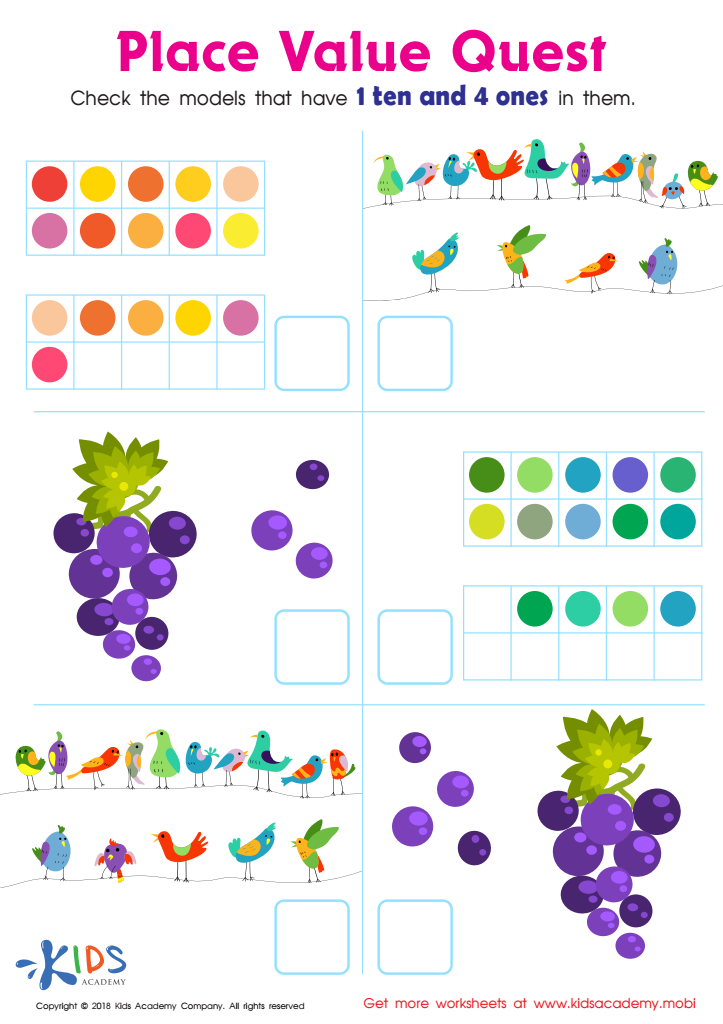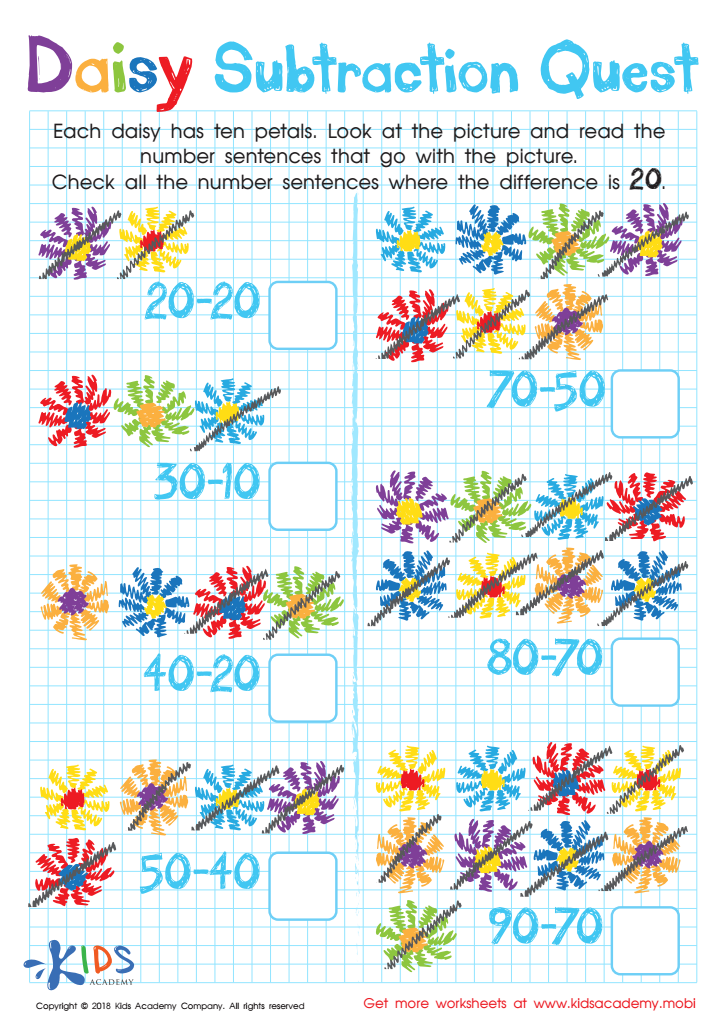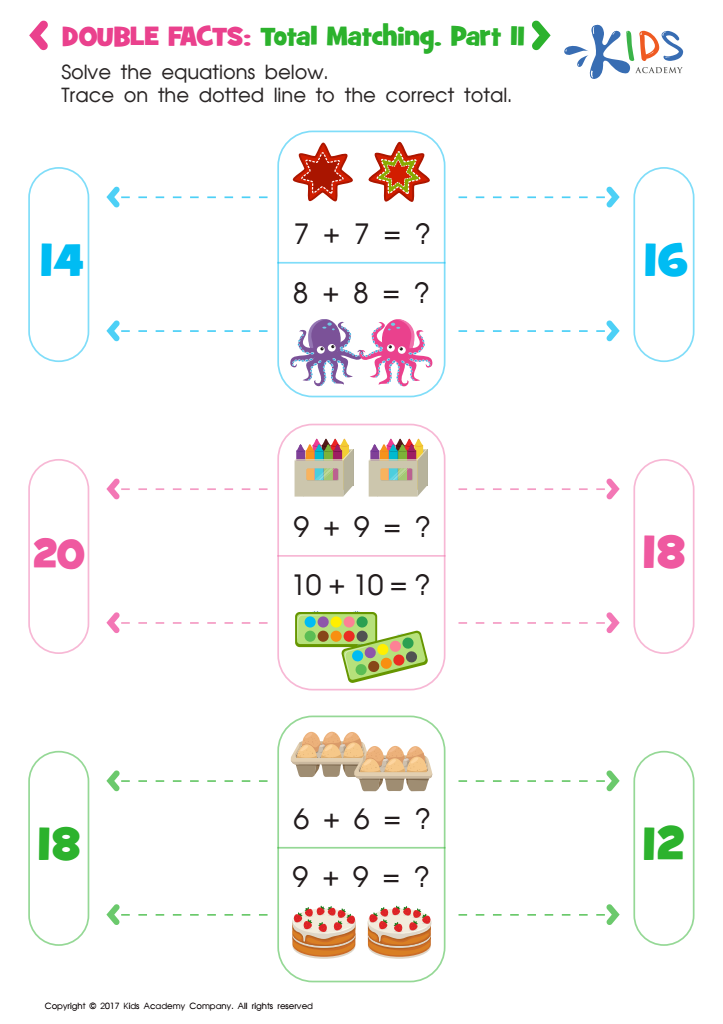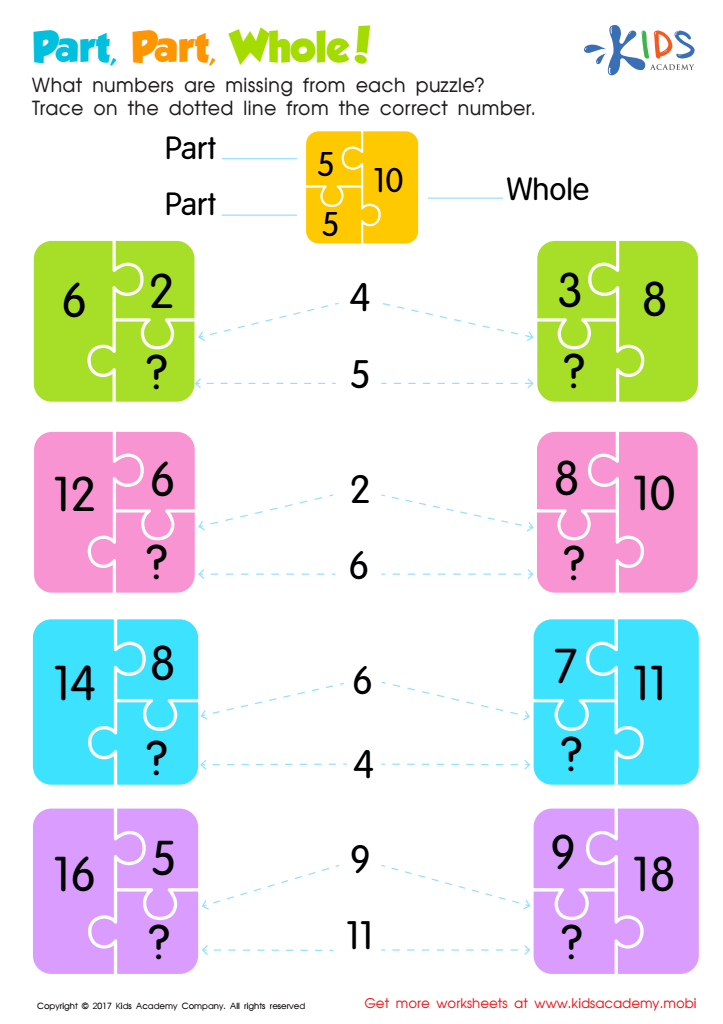Enhancing problem-solving skills Normal Math Worksheets for Ages 5-7
4 filtered results
-
From - To
Unlock your child's potential with our "Enhancing Problem-Solving Skills Normal Math Worksheets" designed specifically for ages 5-7. These carefully crafted worksheets encourage critical thinking and creative problem-solving, making math fun and engaging. Featuring a variety of activities, children will tackle real-life scenarios and math challenges that sharpen their analytical abilities and reinforce essential skills. With bright illustrations and kid-friendly layouts, learning becomes a joyful adventure. Perfect for at-home learning or classroom use, these worksheets foster independent thinking and reinforce foundational math concepts. Help your child develop strong problem-solving skills that will benefit them throughout their educational journey!


Place Value Quest Worksheet


Daisy Subtraction Quest Worksheet


Double Facts: Total Matching 2 Worksheet


Part, Part, Whole Worksheet
Enhancing problem-solving skills in children aged 5-7 is crucial for their cognitive development and academic success. During this formative stage, children's brains are highly receptive to learning, making it an ideal time to cultivate critical thinking and problem-solving abilities. These skills not only shape their mathematical understanding but also lay a foundation for effective reasoning in all subjects.
When parents and teachers prioritize problem-solving in math, they encourage children to think independently, analyze situations, and explore multiple solutions. This helps to build confidence, as children learn to tackle challenges and embrace mistakes as part of the learning process. Additionally, strong problem-solving skills foster creativity and adaptability, essential for navigating an increasingly complex world.
Early exposure to problem-solving in math also enhances children’s ability to make real-world connections, promoting a greater appreciation for mathematics beyond rote learning. It prepares them for more advanced concepts as they progress in their education. Ultimately, prioritizing problem-solving helps to develop lifelong learners who are equipped with essential skills for future academic pursuits and daily life. Therefore, parents and teachers play a pivotal role in nurturing these foundational abilities, ensuring children grow into competent and confident individuals.
 Assign to My Students
Assign to My Students





















